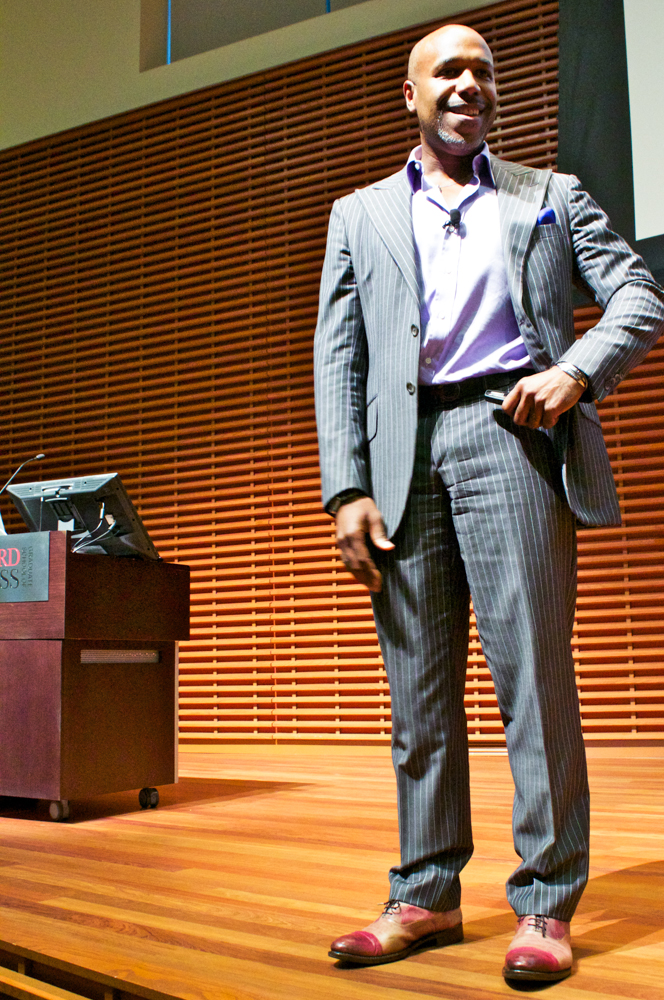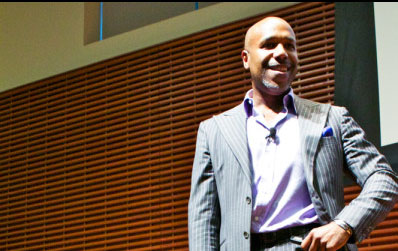
On Thursday evening at CEMEX Auditorium, Glenn Singleton M.A. ‘93, an award-winning author and former admissions director of the University of Pennsylvania, discussed race at Stanford during “Courageous Conversations,” an event hosted by the Stanford National Association for Advancement of Colored People (NAACP).
The event received close to 250 audience members, with those in attendance expressing mixed reactions to Singleton’s talk in general and to its presentation and focus in particular.
Singleton framed his objective as bettering the Stanford community through his work on critical race theory.
“What I am focused on right now and what I am feeling right now is a deep commitment to Stanford,” Singleton said.
Singleton went on to discuss examples of what he considered courageous conversations about race, including Supreme Court Justice Sonia Sotomayor’s dissent against the case upholding Michigan’s ban on affirmative action. He noted that he himself had waited until his graduation day at the Graduate School of Education to bring up his issues with race.
Following his anecdotes, Singleton presented several charts of data showing that African-American, Latino and Native American high school students consistently score lower than their white counterparts on the SAT, even when controlling for household income.
Singleton subsequently introduced four agreements — staying engaging, speaking the truth, experiencing discomfort and expecting and accepting non-closure — that he described as potentially helping to stir conversations about race in the college setting.
The last half of the talk featured audience participation, with attendees speaking about race issues they had personally faced or encountered in their community and how they would like to see them addressed. Some audience members publicly shared their personal experiences and ideas on how Stanford can better facilitate conversations about race.
Overall, Singleton lauded the manner in which audience members engaged with one another.
“I am so proud of the group,” he said. “I am excited by the examples from when the folks stood up.”
Kyle Neil ‘17, one of the event organizers and a member of the Stanford NAACP, described Singleton’s guidance as applicable to conversations not just about race but about other sensitive topics on campus.
“I thought that these tools that Glenn gave us would be very useful in furthering the conversation about race but more importantly would give us the tools to have difficult conversations,” Neil said. “When you look at the idea of ‘Courageous Conversations,’ it is not specifically attached to race.”
However, not everyone left the event feeling that they had gained newfound courage or skillset to broach conversations about race.
Jonathan Spratley ‘15 argued that the discussion was not focused enough.
“I had high hopes for Glenn Singleton’s ‘Courageous Conversations,’ however I left fairly disappointed,” Spratley said. “From the beginning, Singleton’s excessive arrogance left me wondering what the event was about.”
Jackie Fielder ‘16, an organizer for the event and a member of the NAACP, claimed that attendees will continue to have conversations about race long after the conclusion of the event, despite the generally mixed reaction.
“I hope it will give at least the people who attended the impetus to start talking about race and not just race with self but race within their student groups, their dorms and their daily lives,” she said.
During an interview with The Daily following his presentation, Singleton framed the purpose of the Thursday talk as moving the Stanford community towards implementing tools to have conversations about race on campus.
“Today I really wanted the campus to move toward action,” Singleton said.
Contact Chelsey Sveinsson at svein ‘at’ stanford ‘dot’ edu.
